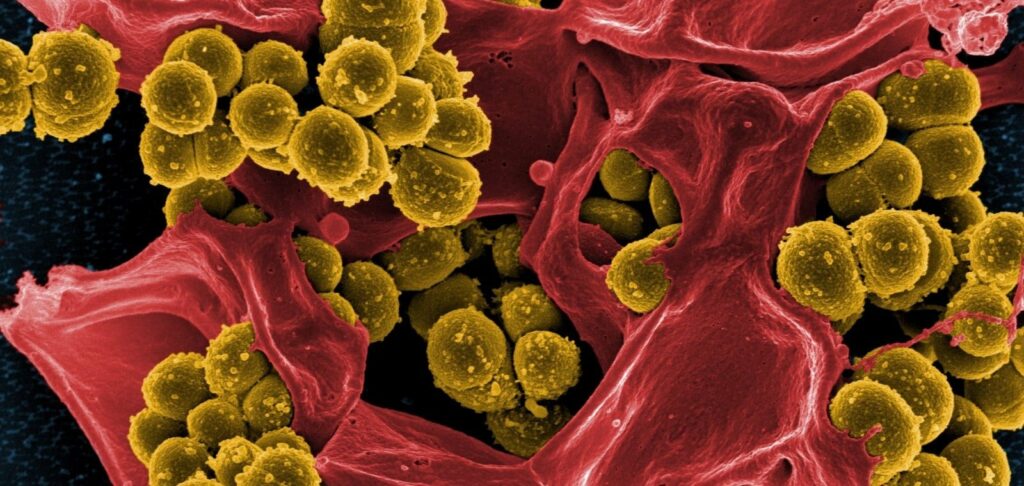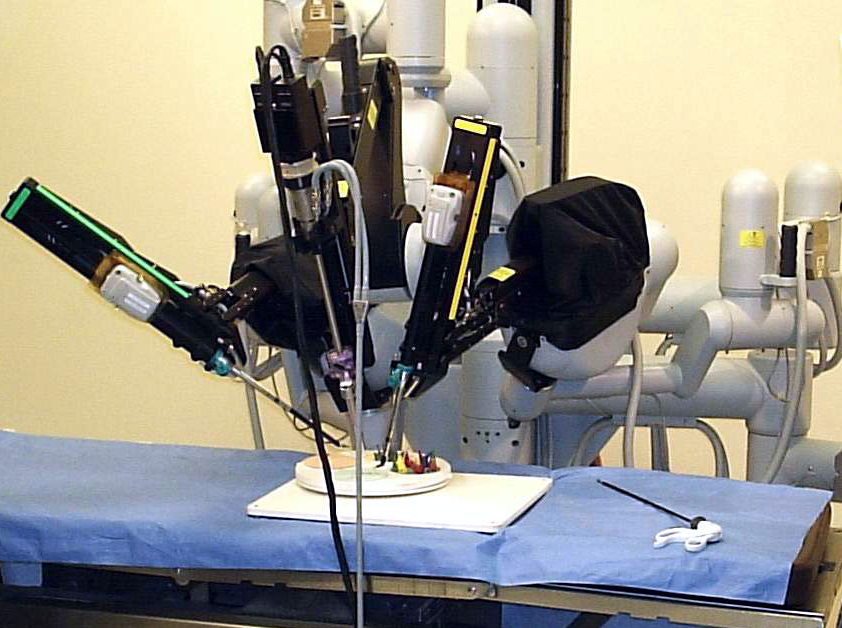
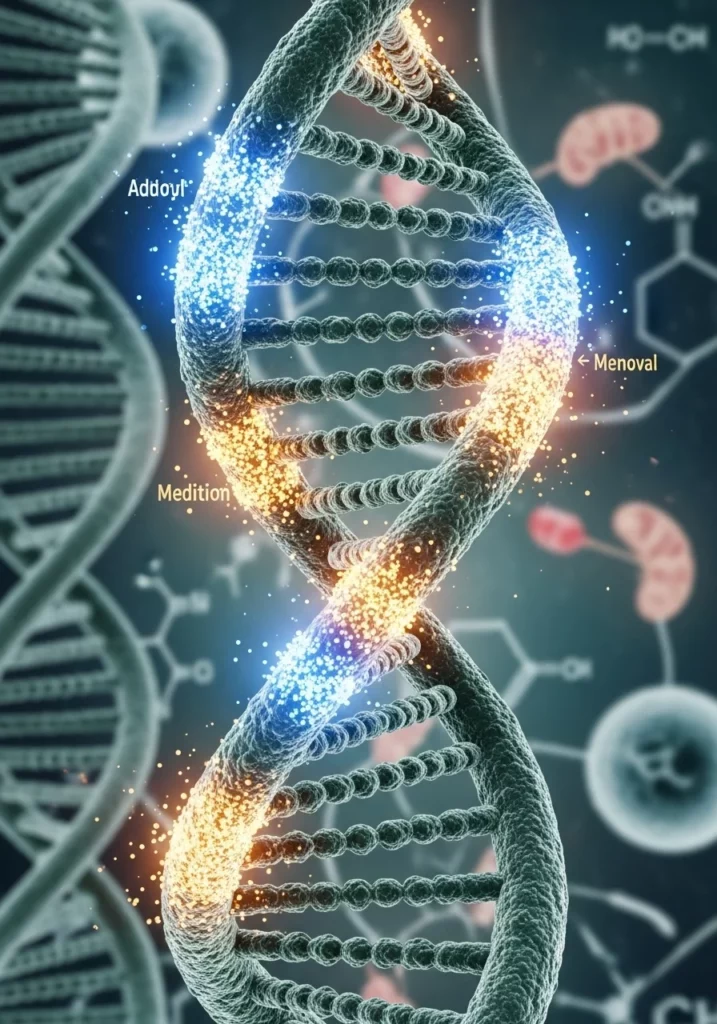
The science of epigenetics has transformed our understanding of how the environment affects health. If the genetic code is the “letters,” then epigenetics is the punctuation that decides what will be read.
It has been proven that nutrition, nutrients, and lifestyle directly influence gene expression, including genes responsible for inflammation, aging, detoxification, and metabolism.
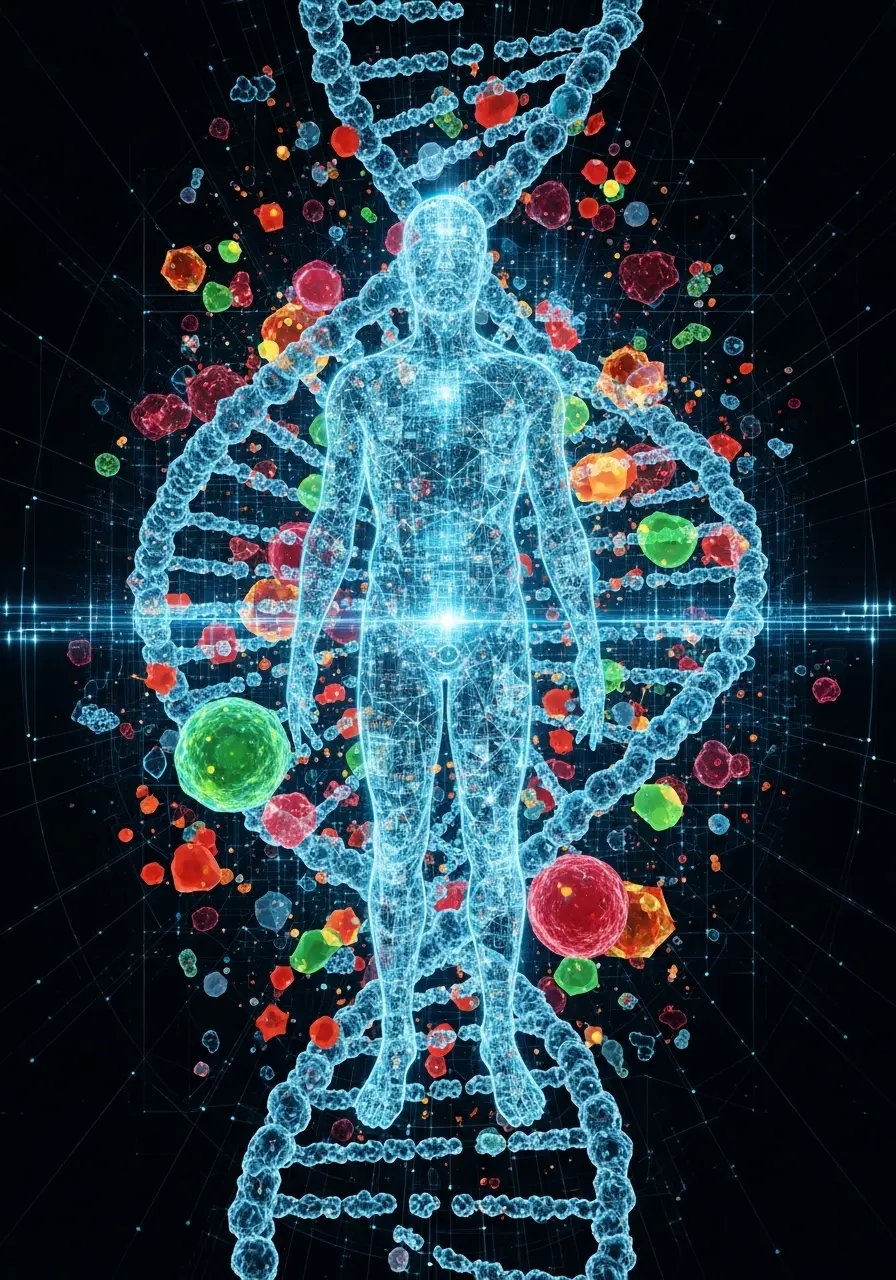
Next-generation nutraceutical science views folates, choline, polyphenols, curcumin, resveratrol, and other compounds as epigenetic modifiers capable of “tuning” genes for longevity.
How Epigenetic Regulation Works
The mechanism of DNA methylation involves the attachment of a methyl group to cytosine — a process that “turns off” certain genes without changing the DNA sequence itself.
For proper methylation to occur, the body needs methyl group donors — folates, vitamin B12, choline, and betaine. These provide the energy and enzymatic potential required for this process.
Histone acetylation, on the other hand, weakens the bond between DNA and histone proteins, “unfolding” sections of the genome for reading.
This mechanism activates gene expression, meaning it “switches on” genes. Curcumin, resveratrol, and butyrate influence this process — they stimulate the activity of acetyltransferases, enzymes that add acetyl groups to histones.
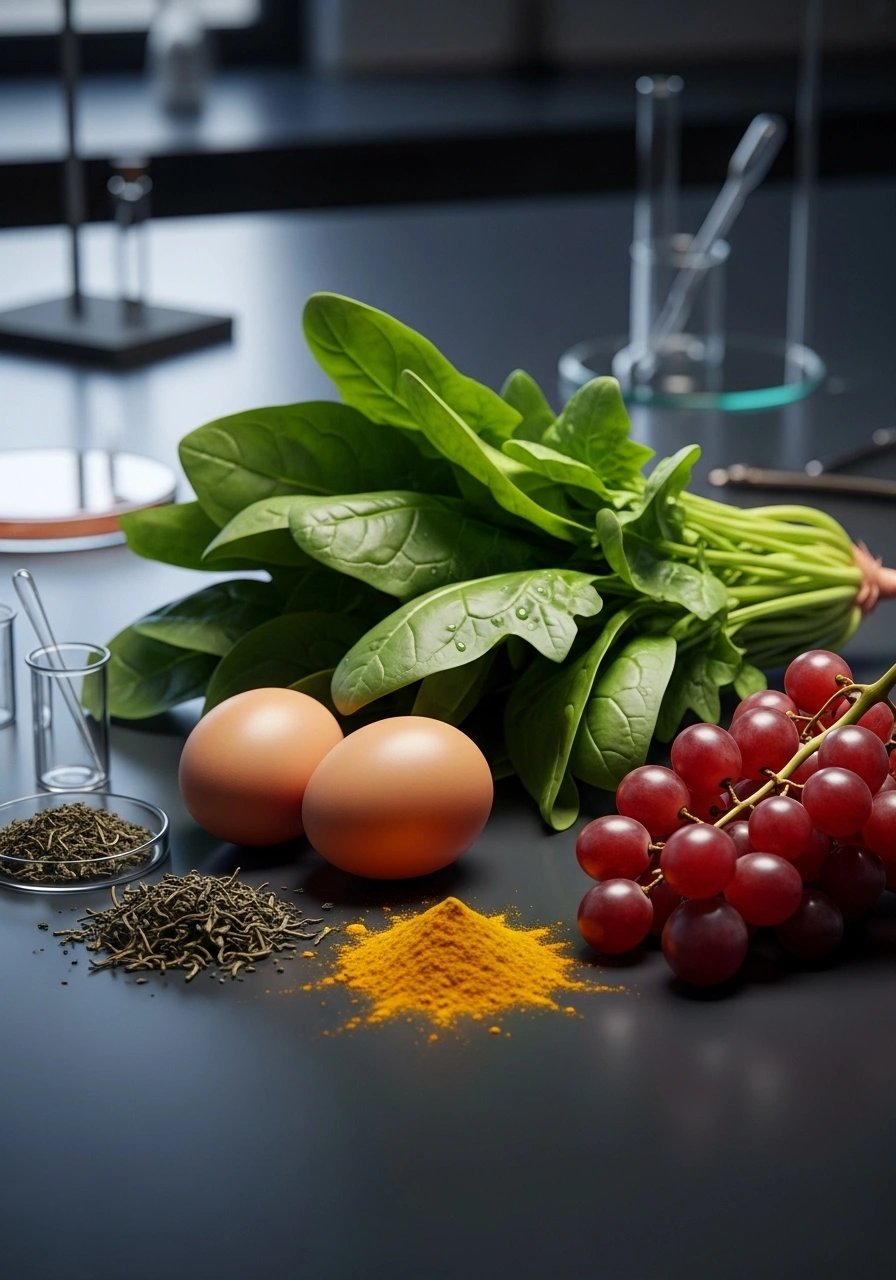
Regulation through microRNAs is a more subtle level of control.
MicroRNAs are short molecules that can suppress the function of specific mRNAs, reducing the synthesis of corresponding proteins. The microRNA profile is significantly influenced by polyphenols — particularly compounds in green tea and quercetin — which modulate the expression of these regulatory molecules.
Chromatin modifications refer to changes in the “packaging” of DNA that affect gene accessibility for transcription.
Omega-3 fatty acids, selenium, and vitamin D3 help stabilize chromatin structure, maintaining a balanced state between gene activation and repression.
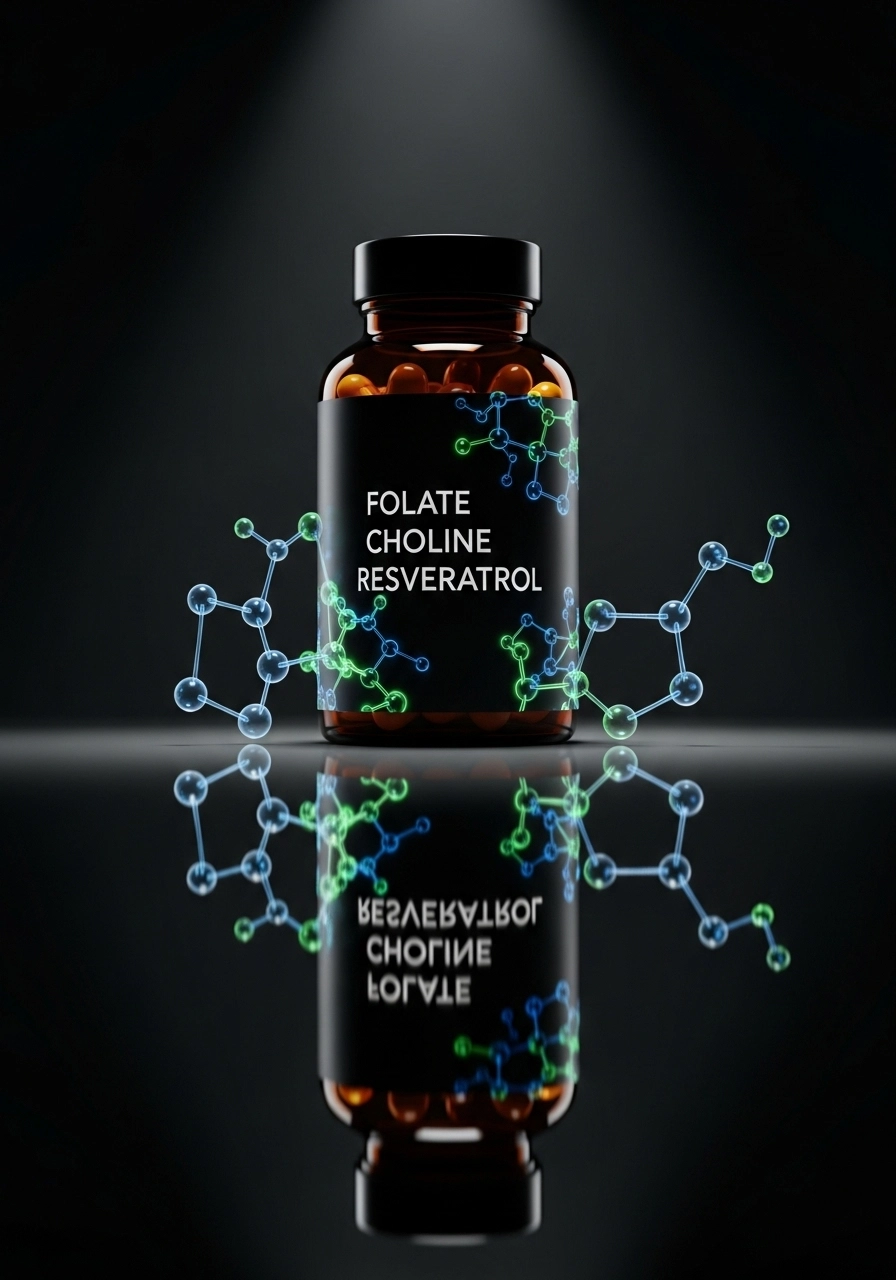
Key Nutrients with Epigenetic Activity
Folates (Vitamin B9) — found mainly in green vegetables, especially spinach. They act as methyl group donors necessary for normal DNA methylation. This helps prevent congenital defects and supports healthy gene expression.
Choline — main sources: eggs and liver. It participates in the synthesis of phospholipids and methylation processes. Supports cognitive function and influences gene expression related to memory.
Curcumin — the active compound in turmeric. Known as an HDAC (histone deacetylase) inhibitor, it reduces cellular inflammation. Regulates NF-κB gene activity and improves brain cell function.
Resveratrol — found in grapes and red wine. Activates the enzyme SIRT1, which affects cell lifespan and insulin sensitivity, supporting metabolic health.
Green tea polyphenols — found in tea, cocoa, and some berries. They modulate microRNA activity that regulates gene expression and reduce the risk of inflammatory and oncological diseases.
Questions and Answers
1. Can food really change gene expression?
Yes, especially when changes are consistent. Dietary methyl donors influence genes responsible for detoxification, inflammation, and aging.
2. Can epigenetic marks be “cleansed”?
Partially — through detoxification, physical activity, and antioxidant nutrients.
3. Are epigenetic changes inherited by children?
Yes, studies show that parental nutrition can affect gene methylation in offspring.
4. Does folate deficiency affect epigenetics?
Yes, it leads to DNA hypomethylation, increasing the risk of cancer and cardiovascular diseases.
5. Can polyphenols “turn off” aging genes?
Yes, through the activation of sirtuins (SIRT1–3) and histone regulation.
Conclusions
Epigenetic regulation by nutrients opens a new era in preventive medicine.
We do not change the genome, but we can rewrite its “settings” through nutrition and nutraceuticals.
This is a path to a personalized approach: diet, vitamins, physical activity, and stress management become epigenetic tools for longevity.
References
-
Milagro, F. I. et al. Nutrients, 2024 — “Epigenetic Modulation by Dietary Components.”
-
Hardy, T. et al. Frontiers in Genetics, 2025 — “Nutrient–Epigenome Interactions in Human Health.”
-
Choi, S. W., Mason, J. B. Annual Review of Nutrition, 2023 — “Folate and DNA Methylation.”
-
Li, Y. et al. Molecular Nutrition & Food Research, 2024 — “Polyphenols and microRNA Regulation.”
-
Singh, C. K., Ageing Research Reviews, 2025 — “Sirtuins and Nutritional Epigenetics.”


